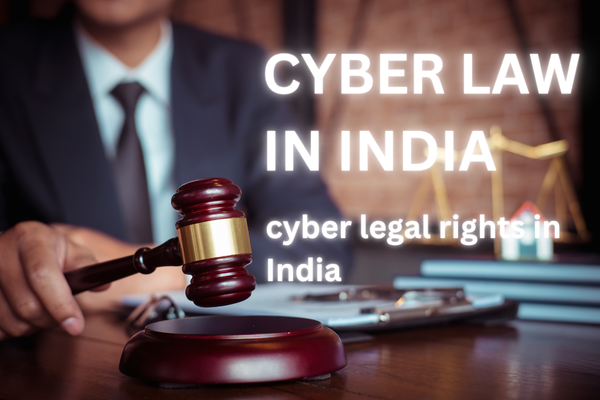Table of Contents
ToggleIntroduction
In today’s digital age, cybersecurity has become a crucial concern for both individuals and enterprises. As technology advances, so do cyber-threats — making it essential for everyone to understand cyber law in India. This blog explores the meaning, scope, and latest developments in Indian cyber laws for 2025.

What Is Cyber Law in India?
Cyber law in India refers to the legal framework that deals with crimes, frauds, and disputes occurring in the digital environment. It governs:
Data protection and privacy
Digital transactions and electronic signatures
Cybercrimes such as hacking, phishing, identity theft
Social media misuse and online defamation
The Information Technology Act, 2000 (IT Act) is the primary legislation that covers cyber law in India.
Key Components of Cyber Law in India
1. Information Technology Act, 2000
India’s central law for electronic governance, cybercrimes, and penalties.
2. Data Protection Rules
New Digital Personal Data Protection Act (DPDP), 2023 enforces strict rules on data collection, storage, and consent.
3. Cybercrime Offences
Covered under both IT Act and the Indian Penal Code:
Unauthorized access
Data theft
Cyber stalking
Online harassment
Why Cyber Law in India Matters in 2025
Increasing digitization in finance, healthcare, and e-commerce
Rising threats of ransomware and data breaches
Mandatory compliance for businesses handling customer data
Growing awareness among users about digital rights & privacy
Cyber Security Compliance Checklist for Businesses
- Appoint a Data Protection Officer
- (DPO)Draft cyber policies and incident response plans
- Encrypt sensitive data
- Conduct regular audits & employee training
- Comply with DPDP Act & CERT-In Guidelines

Tips for Individuals to Stay Safe Online
Use strong passwords and 2-Factor Authentication
Be cautious of unknown links/emails (phishing)
Keep software updated
Avoid sharing personal data publicly
Know your legal rights under cyber law in India
Tips for Individuals to Stay Safe Online
Use strong passwords and 2-Factor Authentication
Be cautious of unknown links/emails (phishing)
Keep software updated
Avoid sharing personal data publicly
Know your legal rights under cyber law in India
Future Trends in Cyber Law in India
- Stricter penalties for data breaches
- Regulation of AI and deepfakes
- Cyber insurance becoming mandatory
- Faster cyber-judicial procedures
Conclusion
Understanding cyber law in India is no longer optional — it is necessary for every individual and business in 2025. From safeguarding personal data to maintaining organisational compliance, being legally aware in cyberspace helps protect against growing cyber-threats and ensures smoother digital operations.
FAQs
Q1. What is cyber law in India?
Cyber law in India is the legal framework that governs online activities, protects digital data, and penalizes cybercrimes under the IT Act, 2000 and related rules.
Q2. What are the main cybercrimes covered under Indian cyber law?
Common cybercrimes include hacking, phishing, identity theft, data theft, cyberbullying, online defamation, and ransomware.
Q3. Which Act controls cyber law in India?
The Information Technology Act, 2000 is the primary act that regulates cyber law in India, along with updates like the Digital Personal Data Protection Act, 2023.
Q4. Is cyber law important for businesses?
Yes. Businesses must comply with data protection regulations and cyber security guidelines to avoid legal penalties and data breaches.
Q5. What are the penalties for cybercrime in India?
Penalties range from fines up to ₹5 crore and imprisonment, depending on the type and severity of the offense.

